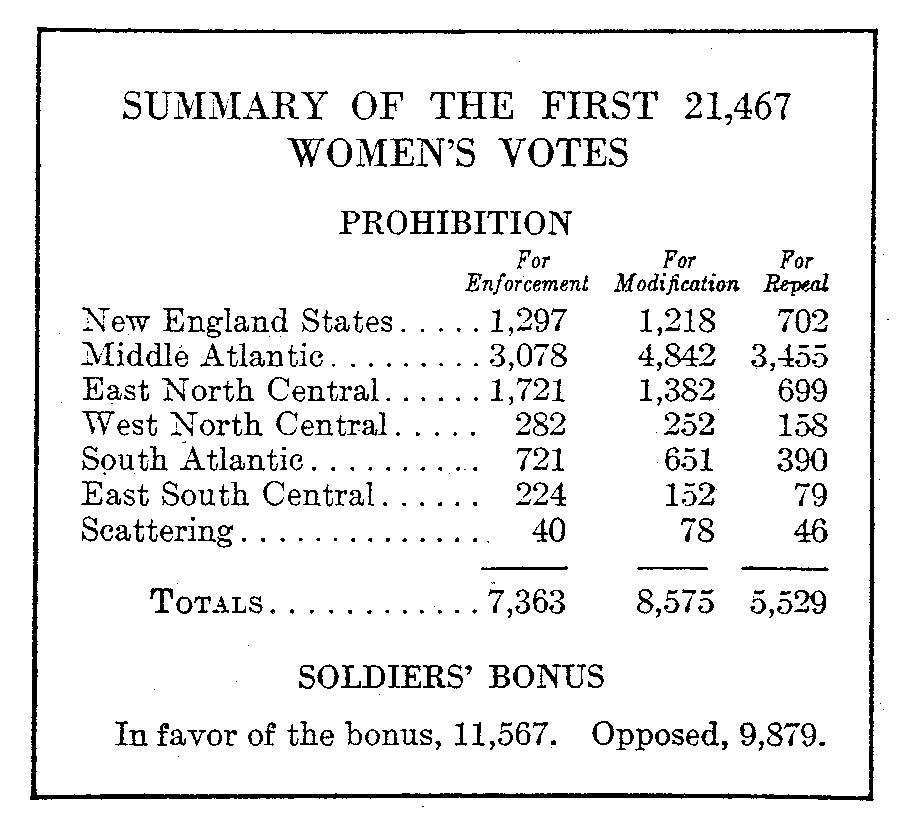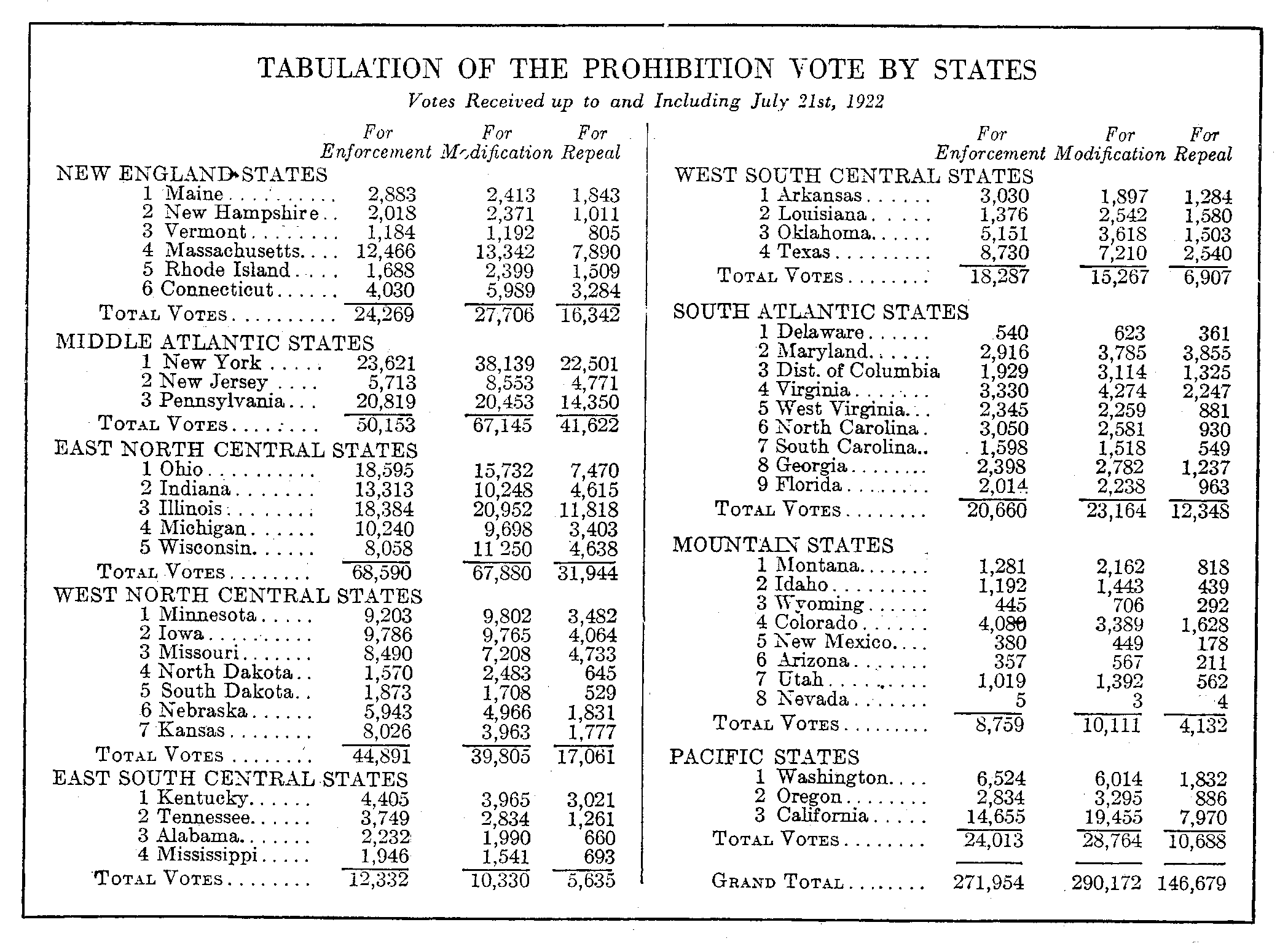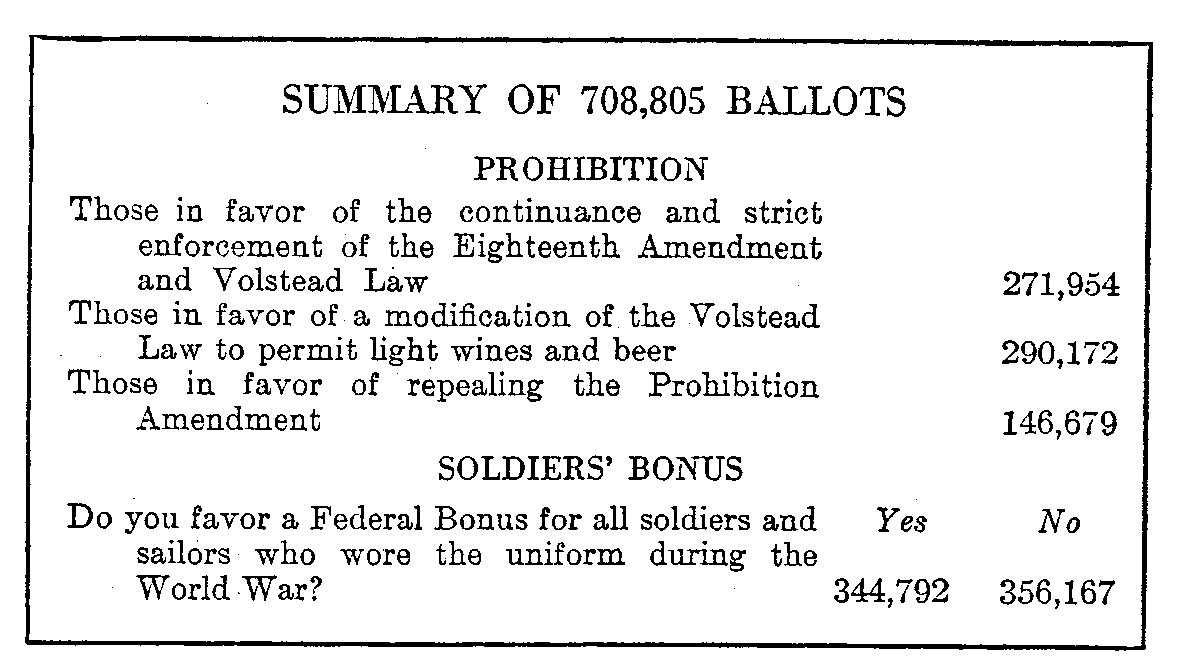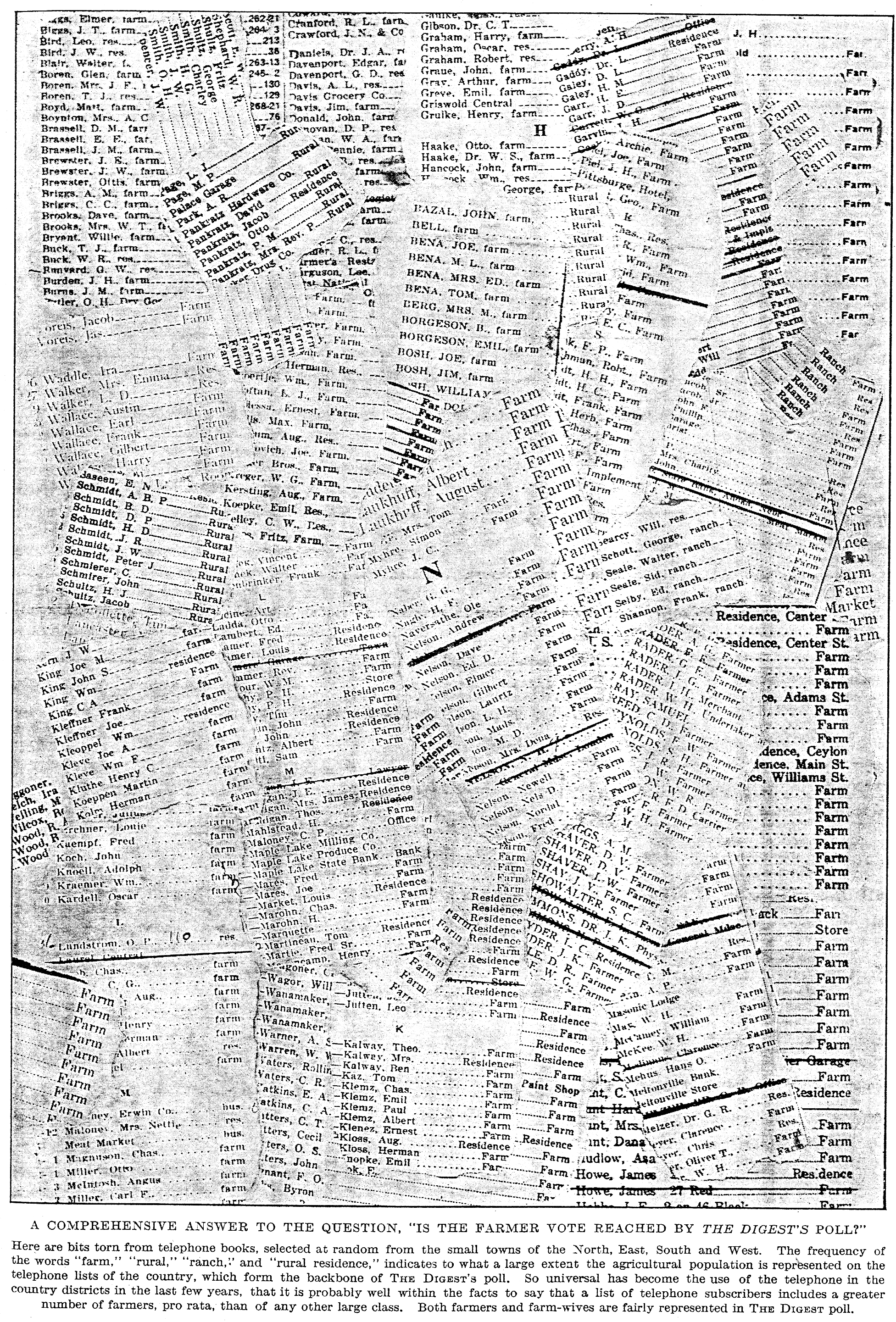Women Vote in "The Digest's" Poll
Literary Digest
THEY'RE WETTER THAN THE MEN!" announced a surprized tally-taker in the counting-room of THE LITERARY DIGEST, after making up the tabulation-sheet of the first scattering returns in THE DIGEST'S special poll of 2,200,000 women of the nation. Since that time, however, the poll has shown a consistent tendency toward "dryness". until, with the tabulation of some 20,000 votes, shown in "summary in the middle of _this page, the Prohibition sentiment appears to be not far be-low that of the main poll, shown on the following page. The percentages stand a little more than 65 against the continuance and strict-enforcement of the Eighteenth Amendment and the Volstead Law, in the women's poll, and slightly more than 61.5 against in the main poll. It must be taken into consideration, as affecting the continued "wetness" of the women's poll, .that the vote. "so far comes chiefly from Eastern States, which are commonly considered to be "damper" in sentiment than are those of the Middle West, Northwest and South. While New York, in the small returns from the women's poll so far received, gives 1,644 for enforcement to 3,202 for modification and 2,239 for repeal, a total of more than three to one against the present laws, the first few returns from Kansas show 136 for enforcement to 58 for modification and 22 for repeal. The first scattering votes from California, on the other hand, the only far-western State thus far represented in the returns, show 37 for enforcement to 73 for modification and 44 for repeal.

The women who are now being polled appear, for the most part, on the voters' lists of the country, whereas the main DIGEST poll, as previously explained, is founded on telephone lists, and several publicists have argued that the general voters' lists would show a slightly less responsible class of citizens, and therefore one more likely to favor "wetness" and the soldiers' bonus. On the other hand, it seems to have been generally conceded that a poll of women would produce "dryer sentiment than a poll in which men predominate, as is true of the main poll now being taken by THE DIGEST, whose present status is shown in summary and in detail on the next page. As has been explained previously, the women's-poll of 2,200,000 ballots is being distributed all over the country, after a careful figuring of percentages, so that the returns may fairly balance, as between men and women voters the complete referendum of 10,000,000 voters which is being taken.
While the main poll this week shows a slight increase of "dry" sentiment, equivalent to at least one-half of one per cent., the factory polls continue to be strongly! in favor of less stringent liquor laws. The most recent factory poll, taken in a branch establishment of a large automobile manufacturer with branches throughout' the country, "shows the following result:
For enforcement 171
For modification 2,170
For repeal 643
This poll ranks with the "wettest" of those so far taken, showing approximately 16 to 1 against "bone-dryness.” Combining the four polls which have been taken among factory-workers, the result runs:
For enforcement 644
For modification 4,949
For repeal2,570
Wayne Wheeler, general counsel of the Anti-Saloon League of America, believes that recent Congressional primaries are much more significant than is THE DIGEST showing. He presents the following statement:
"Your last tabulated vote of Detroit factories, six to one wet, shows the misleading character of this referendum. Michigan voters recently defeated a beer and wine amendment by 209,000.
"The results of the primaries
to date also show that there is no such sentiment for beer and wine as indicated
by THE DIGEST poll. Twenty States have held primary elections: Florida,
Illinois, Indiana, Iowa, Kansas, Kentucky, Maine, Minnesota, Missouri, Nebraska,
North Carolina, North Dakota, Oklahoma, Oregon, Pennsylvania, South Dakota,
( 8)

Tennessee, Texas, Virginia and West Virginia.. Thirteen United States Senators have been nominated in twelve States, two nominations being made in Pennsylvania.
"In the twenty States 217 Congressional districts have nominated candidates. One hundred and ninety-one Congressmen were renominated, of whom 156 have voted for Prohibition enforcement and 35 against it. Of the new nominations about one-third are considered 'wet' or doubtful.
"In many of these States the dominant issue in the campaign was a beer and wine amendment to the National Prohibition Act. The 'wets' have about held their own in the 'wet' districts. Only one 'dry' Congressman has been defeated by a recognized 'wet' candidate. On the other hand, the 'drys' have made gains in both House and Senate. , In some districts the 'wets' have not polled more than 5 per cent. of the vote. In Missouri, with the 'dry' vote-divided among four candidates, Mr. Sacks, the beer and wine candidate on the Republican ticket, was defeated by a large majority by Mr: Brewster. Mr. Reed was renominated, but this adds nothing to the 'wet' forces, as he was always on that side.
" The only accurate and trustworthy' referendum on the issue of beer and wine is in the primaries or in a general election where all of the people have a chance to express their opinion."

In his statement that "Michigan voters recently defeated the beer and wine amendment by 209,000," Mr. Wheeler doubtless refers to the vote of 1917, five years ago, when, according to figures presented by The Anti-Saloon League` of New York, Michigan voted 207,529 against beer and wine. In the case of the various Congressional primaries, even a number of the more" dry "-minded commentators agree, it is very difficult to disentangle the Prohibition issue from the other issues involved. The New York Evening Post, which has never been accused of un-
fairness to the "drys," observes editorially that the-primaries are less significant of Prohibition sentiment than is THE DIGEST'S poll. The writer continues:
"Here and there we hear of the Prohibition issue playing a part in a campaign. Reed in Missouri and Ferguson in Texas were stamped as ' wet' candidates. In Ohio yesterday voters were not allowed to forget that Atlee Pomerene is 'wet' and Simeon Fess is a 'dry.' In New Jersey Frelinghuysen is as outspokenly 'dry' as Edwards is 'wet.' But in nearly all the primaries this issue is subordinated to others, and what part it plays in the result is difficult to tell. The 'wets' are anxious to keep their flag flying. But they know that while there is a bare chance of making the House Democratic this fall, there is not the ghost of a chance to make either House or Senate even 'moist.'
"Granted that the Prohibition question is not settled, it is good to see its settlement kept in the political arena. If the law is bad, its opponents should try to repeal it, not to break and nullify it. No one can object to a straightforward campaign to modify the Volstead Act, but every good citizen will object to efforts to discredit it by encouraging violations and withholding appropriations for its enforcement."
(9)
